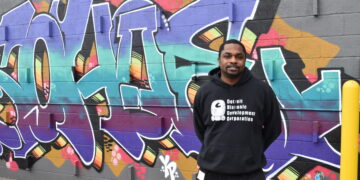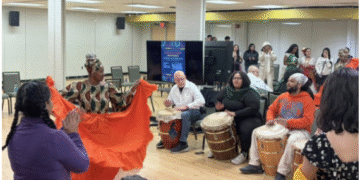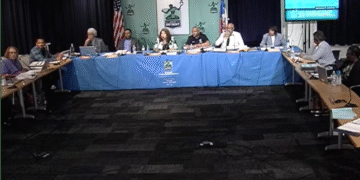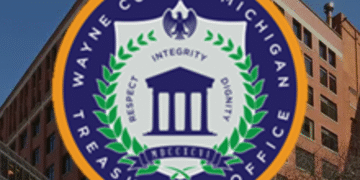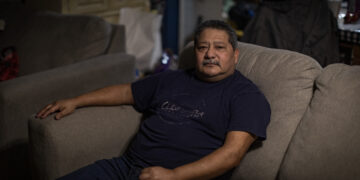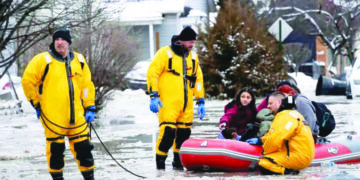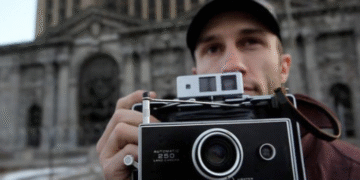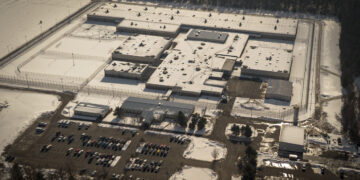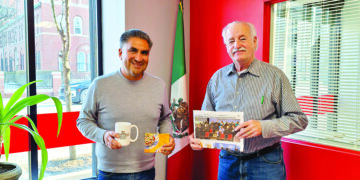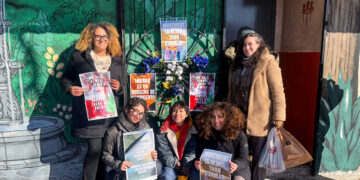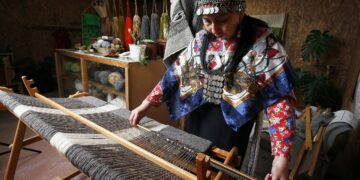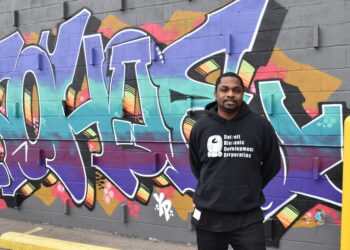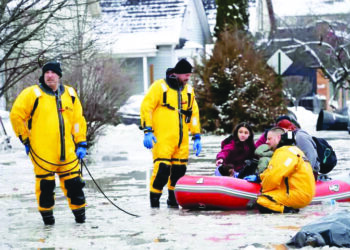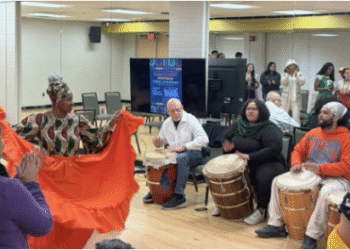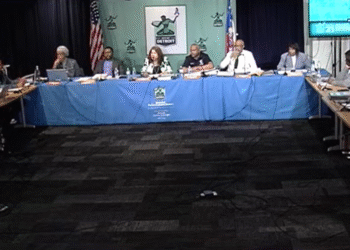On Monday May 8th, Community Health and Social Services (CHASS) Center, located in Southwest Detroit, cut the ribbon and officially celebrated the expansion of mammography services that will help ensure thousands of women in the metro Detroit community receive critical life-saving breast cancer screenings each year. As part of the ribbon cutting ceremony, CHASS Center Director Dr. Felix Valbuena Jr. welcomed Senator Debbie Stabenow, Congressman Shri Thanedar, Detroit Deputy Mayor Todd Bettison, community leaders, and community partners.
There is a brand new state of the art three-dimensional mammography machine in use at CHASS. The Center is following the same screening guidelines as Henry Ford Health and suggests women begin yearly mammography screenings at age fifty, or at the age of forty if there is a history of breast cancer in the family.
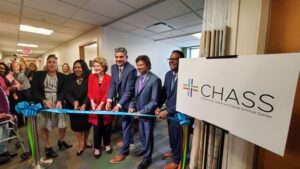
“This is about bringing hope to women. With a five-minute screening, they can get information about whether or not they need to get some kind of treatment for breast cancer. We know the number one killer of women of color is breast cancer and so this is an opportunity to find out early. It is not a death sentence. It is about hope and an important screening that can help to save lives,” said Senator Debbie Stabenow.
This new mammography machine with the sliced tomosynthesis images helps prevent unnecessary callbacks. This technology makes it so doctors can see more in one screening.
“Now we are able to provide the service for the mammogram screening here and it would be the exact same if they were going to the Henry Ford Cancer Institute. It is the same machine, the same radiologists, it’s just being done here in the community.” said Dr. Valbuena.
It took two years to raise the funds to buy the mammography machine, to get support from Henry Ford Health, and to work through all the state certifications. Thanks to a $40,000 grant from the Empowerment Foundation, and other donations CHASS has been providing critical life-saving mammogram exams since February 20, 2023.
On the first day, the mammogram machine was used on thirteen women. CHASS has a referral coordinator who focuses on coordinating services around breast cancer screenings.
“Patients prefer to come to CHASS. It is more convenient for them, especially for patients who don’t drive and who only speak Spanish,” said Lucia Gonzalez. Lucia works at CHASS and helps to schedule insured and uninsured patients for their mammography screening.
Cancer does not discriminate
“A Nation as rich as ours, there is no reason why any person within our country should have to worry about going bankrupt with a healthcare crisis”, said Congressman Shri Thanedar. CHASS is located in his district and he has been part of the Michigan delegation advocating for universal healthcare. “Regardless of what zip code people live in, people must receive quality healthcare. I believe it is a fundamental human right,” he added.
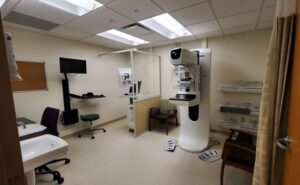
According to the American Cancer Society, about 1 in 8 of U.S. women are going to develop invasive breast cancer in the course of their lives. Breast cancer is the second most common cancer among women in our country. Many of our mothers, grandmothers, sisters, and friends could still be here with us had they received access to quality health screenings earlier. Many of us are fortunate to celebrate these women this May because they received critical life-saving screening. Due to advances in screening measures, doctors are able to use mammograms to detect early signs of breast cancer.
“CHASS is in its fifty-third year of existence, and what we are trying to do is meet all of the needs of the community. A very important need is preventive care, like mammograms for breast cancer,” said Dr. Valbuena.
Early mammograms are the best way to find breast cancer early, when it is easier to treat and before it is big enough to feel or cause symptoms. Unfortunately, not all women have access to the life-saving screening. The goal of CHASS is to have resources, equipment and technology available to continue providing the most advanced care for their patients.
Congressman Thanedar related a personal story at the ceremony. “I lost my sister to breast cancer. This is really special to me because CHASS is making mammography screening available to women at no cost. CHASS doesn’t ask for your social security number, insurance- regardless of these things, the service is available. I think about her every day and early detection is the key,” he said.
A model of community care
CHASS has provided services to residents of Southwest Detroit since 1970. They strive to meet the community’s need for access to affordable, quality health and wellness care. CHASS relies on the generosity of donors, investors, and partners to be able to deliver linguistically and culturally proficient care to patients.
“In a center delivering care to a community where seventy percent of patients walking in prefer that we communicate in Spanish it is offensive to not have patient facing staff that cannot communicate with them,” said Dr. Valbuena. “The technicians doing the mammography exam do not speak Spanish but we have community health workers who are helping the patient during care.”
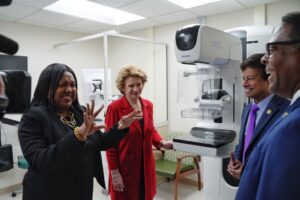
“In the City of Detroit, people understand the importance of a mammogram screening but the ability to do it can be a problem. Fortunately, at CHASS we have been able to make a connection with our patients and within the community to create trust. Now we have eliminated another step, where patients no longer have to go somewhere else to get the mammogram,” said Richard Bryce, Chief Medical Officer at CHASS.
The mortality rate for breast cancer is higher for Latinas, Black and Native American women. Part of the challenge is access to the critical life-saving technology. Mammography exams are critical screenings that can detect breast changes years before you might notice any symptoms. This can help find breast cancer in its early stages, when it’s easier to treat. This is why it’s so important to get them done. Mammograms save lives. Decades of research show that women who are screened regularly are more likely to find their breast cancer early. Mammography screenings make these women less likely to need aggressive cancer treatment and more likely to be cured.
“Our goal at CHASS is to not be the best kept secret,” said Dr. Valbuena. Community health centers like CHASS provide the model for primary healthcare for the nation. They are in every state and in every US territory and collectively care for more than thirty million people.
CHASS is always accepting new patients, offers a full spectrum of ongoing services including primary and preventative health care, as well as dental and behavioral health services for individuals of all ages.
The Center accepts patients of all ages and insurance status from uninsured to insured, including Medicaid and Medicare.
Irma Maribel Andrade is a born and raised Detroiter; she is passionate about “lifting others as you climb”. She is a daughter of immigrants from San Luis Potosi, Mexico and a first generation college graduate from UM-Ann Arbor currently pursuing a Masters in Social Work. When she is not studying, Irma spends her time gardening, crafting, advocating for social justice and being wife & mom of two.


